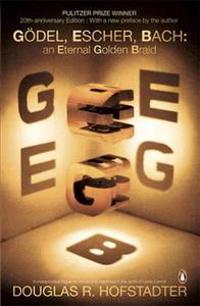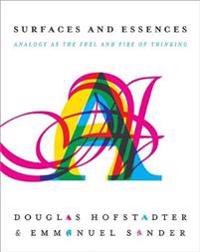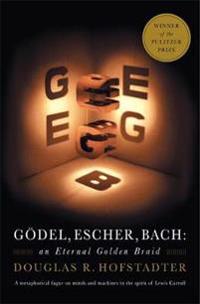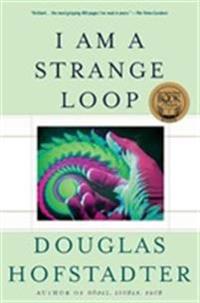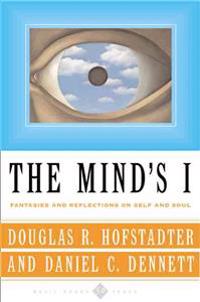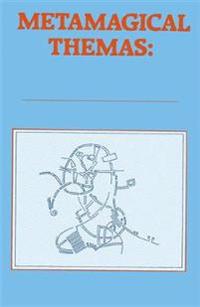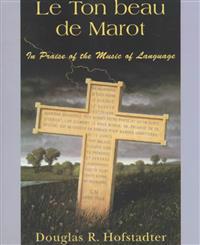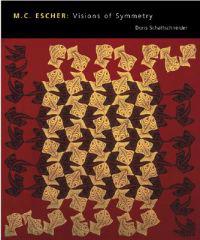Godel, Escher, Bach (Häftad)
avDouglas R. Hofstadter
ISBN: 9780140289206 - UTGIVEN: 200003'What is a self, and how can a self come out of inaminate matter?' This is the riddle that drove Hofstadter to write this extraordinary book. Linking together the music of J.S. Bach, the graphic art of Escher and the mathematical theorems of Godel, as well as ideas drawn from logic, biology, psychol[...]
Surfaces and Essences (Inbunden)
avDouglas R. Hofstadter, Emmanuel Sander
ISBN: 9780465018475 - UTGIVEN: 201105In a major new work from the author of "Godel, Escher, Bach and I Am a Strange Loop", two leading scholars argue that analogy is the basis for all human thoughts. From this singular premise, Pulitzer-Prize winning author Doug Hofstadter and French psychologist Emmanuel Sander construct a broad argum[...]
Fluid Concepts and Creative Analogies (Häftad)
avDouglas R. Hofstadter
ISBN: 9780465024759 - UTGIVEN: 1996-03Readers of earlier works by Douglas Hofstadter will find this book a natural extension of his style and his ideas about creativity and analogy; in addition, psychologists, philosophers, and artificial-intelligence researchers will find in this elaborate web of ingenious ideas a deep and challengin[...]
Godel, Escher, Bach (Häftad)
avDouglas R. Hofstadter
ISBN: 9780465026562 - UTGIVEN: 199901G(del, Escher, Bach is a Pulitzer Prizewinning treatise exploring patterns and symbols in the thinking of mathematician Kurt G(del, artist M. C. Escher and composer Johann Sebastian Bach. A groundbreaking book that has set the standard for interdisciplinary writing. A book every thinking reader must[...]
I am a Strange Loop (Häftad)
avDouglas R. Hofstadter
ISBN: 9780465030798 - UTGIVEN: 200808Douglas R Hofstadter's long-awaited return to the themes of Godel, Escher, Bach - an original and controversial view of the nature of consciousness and identity.Can thought arise out of matter? Can self, a soul, a consciousness, an 'I' arise out of mere matter? If it cannot, then how can you or I be[...]
The Mind's I (Häftad)
avDaniel C. Dennett, Douglas R. Hofstadter
ISBN: 9780465030910 - UTGIVEN: 200012From some of the 20th century's greatest thinkers, essays on topics as diverse as artificial intelligence, evolution, science fiction, philosophy, reductionism, and consciousness. With contributions from Jorge Luis Borges, Richard Dawkins, John Searle, and Robert Nozick, The Mind's I explores the me[...]
Metamagical Themas (Pocket)
avDouglas R. Hofstadter
ISBN: 9780465045662 - UTGIVEN: 199604Hofstadters collection of quirky essays is unified by its primary concern: to examine the way people perceive and think..[...]
Le Ton Beau De Marot (Häftad)
avDouglas R. Hofstadter
ISBN: 9780465086450 - UTGIVEN: 199805Lost in an artthe art of translation. Thus, in an elegant anagram (translation = lost in an art), Pulitzer Prize-winning author and pioneering cognitive scientist Douglas Hofstadter hints at what led him to pen a deep personal homage to the witty sixteenth-century French poet Clment Marot. Le ton b[...]
M.C. Escher: Visions of Symmetry (Inbunden)
avDoris Schattschneider, Douglas R. Hofstadter
ISBN: 9780810943087 - UTGIVEN: 200405Doris Schattschneider's classic "M. C. Escher: Visions of Symmetry (1990) is the most penetrating study of Escher's work in existence, and the one most admired by mathematicians and scientists. It deals with one powerful obsession that preoccupied Escher: what he called the regular division of the p[...]
Gödel, Escher, Bach (Pocket)
avDouglas R. Hofstadter
ISBN: 9783423300179 - UTGIVEN: 2005-11Im Mittelpunkt steht die geniale Entdeckung des Mathematikers Kurt Gödel (1906 bis 1978), der 1930/31 versucht hatte, streng mathematisches Denken auf die eigene Wissenschaft anzuwenden. Bei diesem Vorgehen war Gödel auf den nach ihm benannten Unvollständigkeitssatz gestoßen, der das mathematisc[...]

